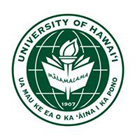- News and articles
- Find usIDP AustraliaIDP BahrainIDP BangladeshIDP CambodiaIDP CanadaIDP ChinaIDP EgyptIDP GhanaIDP Hong KongIDP IndiaIDP IndonesiaIDP IranIDP JordanIDP KenyaIDP KoreaIDP KuwaitIDP LebanonIDP MalaysiaIDP MauritiusIDP Middle EastIDP NepalIDP New ZealandIDP NigeriaIDP OmanIDP PakistanIDP PhilippinesIDP Saudi ArabiaIDP SingaporeIDP Sri LankaIDP Taiwan, ChinaIDP ThailandIDP TurkeyIDP UAEIDP VietnamIDP Corporate
- Social
- English
- Where we operate
- Courses
- Scholarships
- IELTS
- About IDP
- Student Essentials
- News and articles
- Find us
- Find us
- Find nearest IDP offices
- IDP Australia
- IDP Bahrain
- IDP Bangladesh
- IDP Cambodia
- IDP Canada
- IDP China
- IDP Egypt
- IDP Ghana
- IDP Hong Kong
- IDP India
- IDP Indonesia
- IDP Iran
- IDP Jordan
- IDP Kenya
- IDP Korea
- IDP Kuwait
- IDP Lebanon
- IDP Malaysia
- IDP Mauritius
- IDP Middle East
- IDP Nepal
- IDP New Zealand
- IDP Nigeria
- IDP Oman
- IDP Pakistan
- IDP Philippines
- IDP Saudi Arabia
- IDP Singapore
- IDP Sri Lanka
- IDP Taiwan, China
- IDP Thailand
- IDP Turkey
- IDP UAE
- IDP Vietnam
- IDP Corporate
- Social
- Language Switcher
- IDP Education /
- Colleges and Universities /
- United States /
- University of Hawaii - Manoa /
- Bachelor of Arts in Environ...

Bachelor of Arts in Environmental Earth Science - Earth Science Education
At UNIVERSITY OF HAWAII - MANOA

Location
United States
Qualification
Bachelor Degree
Duration
8 Semester(s)
Next intake
22 August 2025
Course info
The Earth Science Education track is for students who want to become top-quality middle-school and high-school Earth Science teachers. The curriculum includes all required topical coursework for Earth Sciences certification by the Hawai'i State Department of Education, including courses in meteorology and oceanography. If students in the Earth Science Education pathway enroll in the College of Education's Post-Baccalaureate certificate program after they earn the BA, they will be certified as Earth Science teachers in Hawai'i.
This BA track requires 39 credits in the Earth Sciences, oceanography, and meteorology curriculum, including introductory level ERTH and ATMO courses with labs, seven non-introductory ERTH, ATMO, and OCN courses, a two-credit research seminar, an upper-division teacher-education course, and at least 30 credits of approved upper division electives. With the advice and consent of an undergraduate advisor, courses in other natural sciences, mathematics, or engineering may be substituted as electives. A mainland summer field course is an elective that students are strongly encouraged to take. Required support classes include physics, chemistry, biological sciences, and one semester of college calculus, these total 23-24 credits and should be taken as early as possible. A minimum grade of C (not C-) must be achieved in all major and support classes.
- Scholarships
- Internships
Course fees are indicative and should be used as a guide. to get an accurate price.
Duration: 8 Semester(s)
| Intake | Location |
|---|---|
| Fall (August), 2025 | HONOLULU |
Application Deadline
The application deadline isn't available Speak to an IDP counsellor for more detailed information
Further information
If you aren't eligible for the above entry requirements, you might ant to explore pathway options at University of Hawaii - Manoa. If you want to find out more, speak to our counsellors.
THE World Ranking
251st / 1250
THE World RankingWhat our students think
We’ve haven’t received any reviews for this institution yet.
Recommended for you
- Associate Degree
- Shoreline , United States
- Next intake:04/2025
- Entry Score: IELTS 5.5
- USD9903 (2025)
- Associate Degree
- Shoreline , United States
- Next intake:04/2025
- Entry Score: IELTS 5.5
- USD9903 (2025)
- Advanced Certificate
- Shoreline , United States
- Next intake:04/2025
- Entry Score: IELTS 5.5
- USD9903 (2025)
- Associate Degree
- Shoreline , United States
- Next intake:04/2025
- Entry Score: IELTS 5.5
- USD9903 (2025)
- Associate Degree
- Los Altos Hills , United States
- Next intake:04/2025
- Entry Score: IELTS 5.5
- USD9720 (2025)
- Bachelor Degree
- Menomonie , United States
- Next intake:04/2025
- Entry Score: IELTS 6.0
- USD42900 (2025)
- Advanced Certificate
- Cupertino , United States
- Next intake:04/2025
- Entry Score: IELTS 5.5
- USD9936 (2025)
- Bachelor Degree
- Menomonie , United States
- Next intake:04/2025
- Entry Score: IELTS 6.0
- USD42900 (2025)
Your action plan
Step 1
Shortlist your courses
Choose the best three courses you’re most likely to pursue.
Step 2
Check your eligibility
Get an instant in-principle offer for courses with the IDP FastLane tag.
Step 3
Apply through IDP Live
Fill out the form once and use it to apply to multiple courses.
How does IDP FastLane work?
With the FastLane 'Offer in Principle', you'll know in minutes if you'll be accepted!
Select an institution and course
Create your academic profile
Submit your application for an 'Offer in Principle'
Your chosen institution(s) will send you a decision in minutes!
Get ready to apply with an expert counsellor




